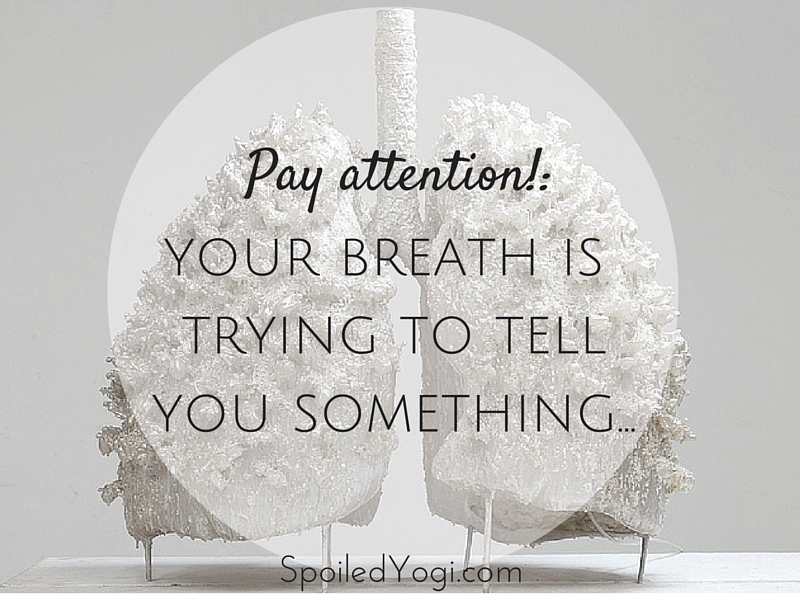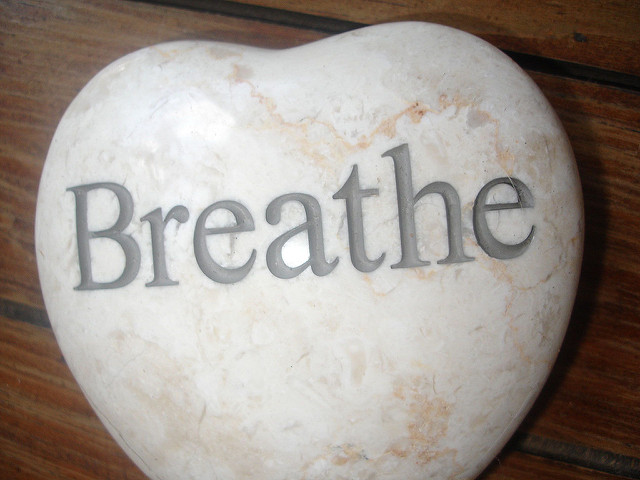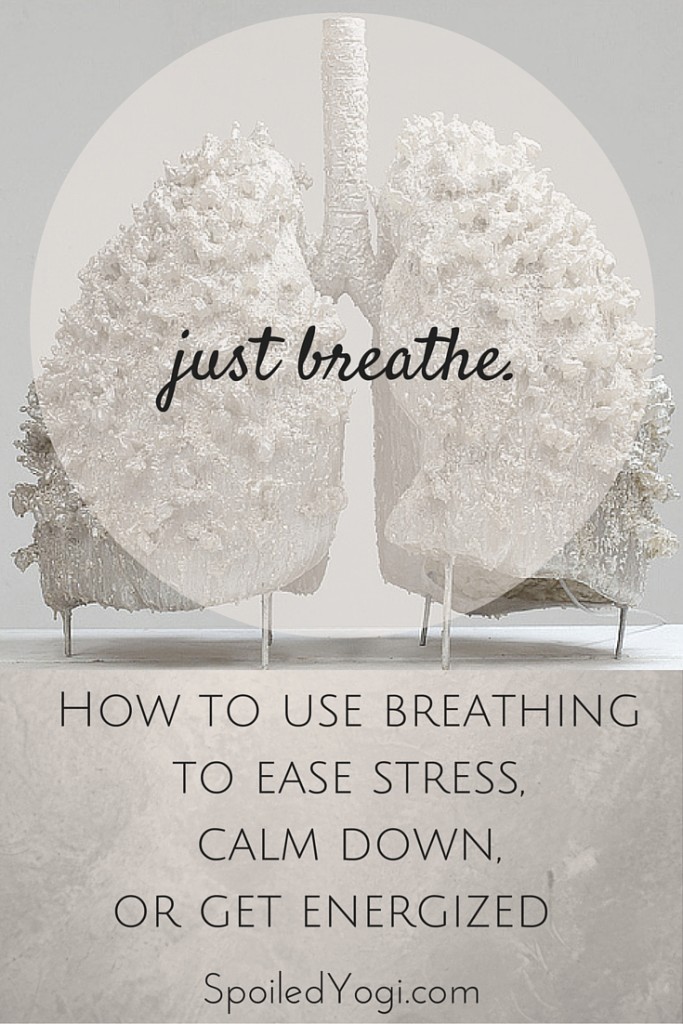
Have you ever heard anyone talk about yoga breathing and wondered what on earth they’re talking about?
Stop whatever you’re doing right now and take a slow, deep breath.
Go on, I’ll wait.
Now, isn’t that better?
There’s something about slowing down your breathing that eases tension in your body and calms your mind.
There’s a profound connection between breath, body, and mind. What you do with one affects the others. Just think about what happens when you’re freaking out about something—your heart pounds, you might break out into a sweat, and your breath gets rapid and shallow (there’s no time to breathe into your belly when you’re freaking out, so you probably breathe quick breaths that only expand your collarbones a bit).
Luckily, the opposite is true, too. When you’re in the midst of a freak out, and you notice your body responding in the way I just described above, one of the best things you can do for yourself is interrupt the sequence of events taking place in your body by taking a big, deep, belly breath. Even people who have never set foot on a yoga mat know this. It’s a very common thing for moms from all walks of life to tell a child in the middle of a tantrum.
Take a deep breath. Count to ten. Slow down.
It doesn’t work because the child realizes the err of his ways. It works because the breath disrupts the body’s response to stress and that has an instant calming effect on the mind and emotions, too.
That’s also why there’s SO much emphasis on breathing for mamas who are preparing to give birth naturally.
The breath is magical.
And since it’s is something you do all the time anyway—and it’s not as disruptive as busting out a Down Dog in the middle of a grocery store, work or wherever else you might be—breathing can have a dramatic impact on your daily life, too. You can check in with your breath anytime you want to gain a somewhat objective and honest look into what’s going on with you. Are you stressed out or anxious? Are you calm? Depressed? Energized?
Pranayama for Yoga Mamas
Then by making a conscious effort to change your breathing pattern, you can impact your mood and how my body reacts to your mood, too. Another word for yoga breathing is pranayama, which really just means breathing mindfully. While there are tons of specific techniques you can try for different reasons (I’ll share some of my favorites in an upcoming blog post so stay tuned!), just becoming more aware of your breath and slowing, deepening, or balancing when necessary is a great place to start.

How to Use Yoga Breathing to Find More Balance
Fast shallow, chest breathing. This is the universal sign of stress—and when you notice yourself doing it, doing some simple yoga breathing can help you to relieve stress, calm down, and feel better almost instantly. The next time you’re stressed out about something, try taking a few deep breaths. I promise you’ll see things a bit more differently when you’re not so worked up over the situation.
Held breath. When you catch yourself holding your breath, it’s probably because you’re trying too hard at something—maybe it’s a yoga pose, or you’re thinking a little too hard about a particular problem you’re trying to solve. Either way, it probably means it’s time to back off, take a Child’s Pose, relax a little, and come back to the task at hand when you can keep your breath steady and flowing.
More exhale than inhale. When your exhale is longer than your inhale, there’s a good chance that you’re feeling defeated, drained, or even depressed. Finding more equilibrium by consciously extending the inhalation can give you more energy, elevate your mood, and help you feel more balanced.
Slow, balanced breathing. On those occasions when you’re feeling calm, controlled, focused, and just plain happy, your inhales and exhales will be the same length. You will also be able to feel them go deeper into my diaphragm. It’s kind of astonishing how infrequently I notice this type of breathing—usually just during Savasana, my morning meditation, or before I drift off to sleep.
Do you check in with your breath often? I want to hear all about how being mindful of your breath has affected you in other areas of your life.

Photo credits:
Featured image by cea+
Breathe photo by Shawn Rossi



Comments